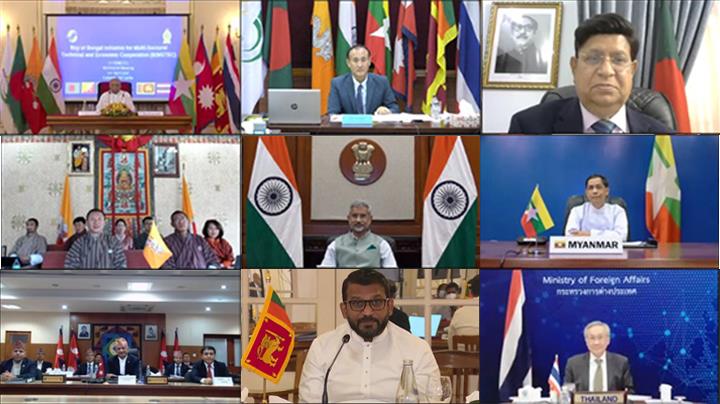
Following denials of accepting Myanmar’s military coup, Sri Lanka chaired the 5th Bay of Bengal Initiative of the Multi-Sectoral Technical and Economic Co-operation (BIMSTEC) summit which was attended by Myanmar’s military junta.
This comes as Myanmar’s junta continues its brutal suppression of dissent, killing at least 535 people during peaceful demonstrations. These include the murder and grievous harm of children as young as one year old. In response to these disturbing scenes, international leaders have issued harsh condemnation and imposed sanctions on the military regime.
Across the North-East, Tamil civil society activists and human rights defenders organised peaceful demonstrations in Mannar and Batticaloa calling for the Sri Lankan government to sever ties with Myanmar’s junta. Organisers of the demonstration put out this statement on the situation in Myanmar:
“People came to the streets and protested to release their political leaders and voiced for people’s democratic rights. Myanmar military – which has been criticized for genocide against Rohingya Muslims – is using lethal attacks on peaceful protestors”.
The BIMSTEC meeting followed a leaked letter from Sri Lanka’s Foreign Minister, Dinesh Gunawardena, in which invited Wunna Maung Lwin, a military-junta appointed foreign secretary, to the conference. Jayanath Colombage, secretary to Sri Lanka’s Ministry of Foreign Affairs, has since denied that Sri Lanka has officially recognised the military regime claiming that the invitation was sent as Myanmar was a member of BIMSTEC.
“That doesn’t mean we have accepted the Myanmar military government,” he said. “We have not taken a position on that.”
The conference was also attended by senior government officials from Bangladesh, Bhutan, India, Nepal, and Thailand. They discussed focused on joint approaches to deal with the issues posed by the COVID-19 pandemic as well as poverty, natural disasters, climate change, pandemics and other public health emergencies, terrorism and transnational crimes, and food and energy security.
Read more here.
We need your support
Sri Lanka is one of the most dangerous places in the world to be a journalist. Tamil journalists are particularly at threat, with at least 41 media workers known to have been killed by the Sri Lankan state or its paramilitaries during and after the armed conflict.
Despite the risks, our team on the ground remain committed to providing detailed and accurate reporting of developments in the Tamil homeland, across the island and around the world, as well as providing expert analysis and insight from the Tamil point of view
We need your support in keeping our journalism going. Support our work today.
For more ways to donate visit https://donate.tamilguardian.com.

